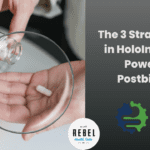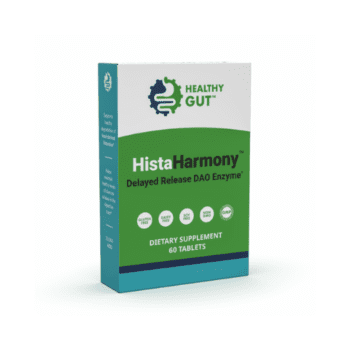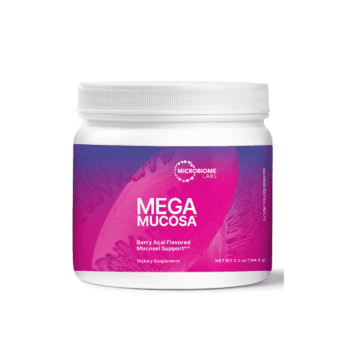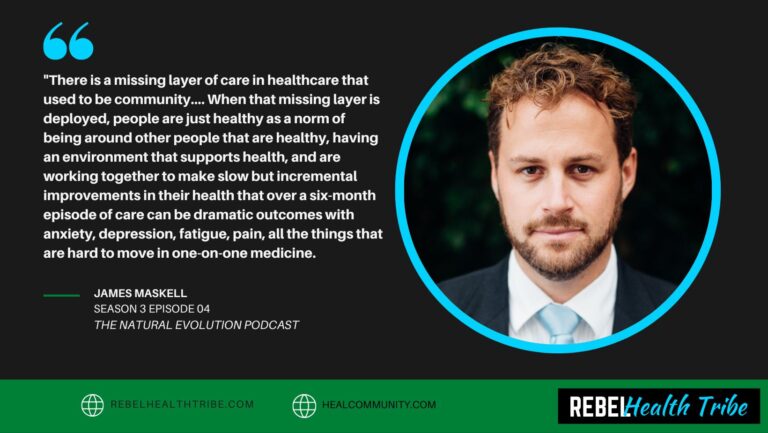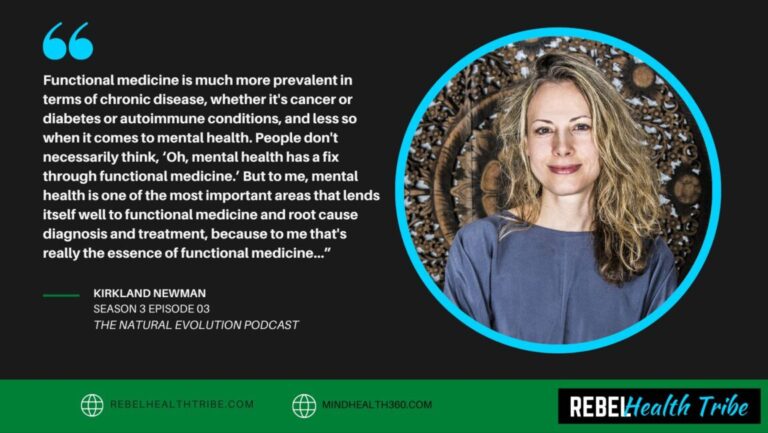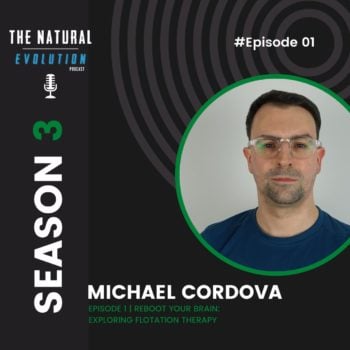

More Posts from
AutoImmune & Chronic Disease
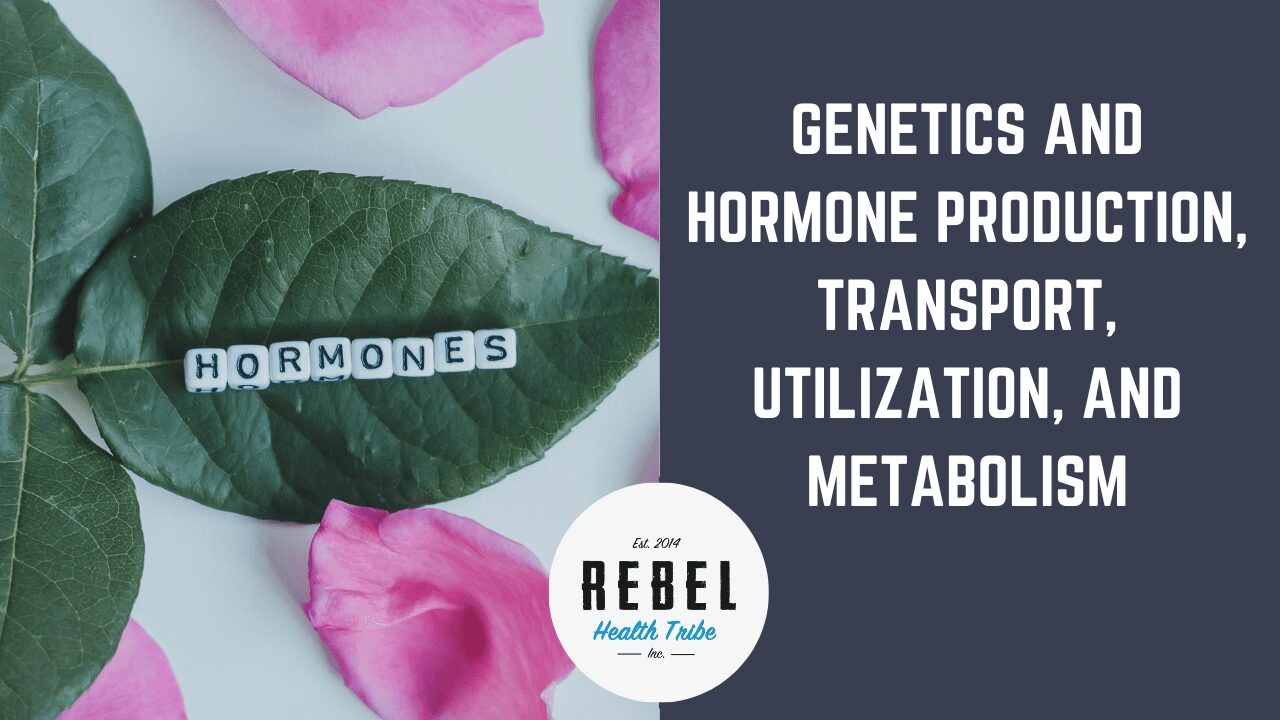
Genetics and Hormone Production, Transport, Utilization, and Metabolism
Our genetics play a larger role in our hormones than
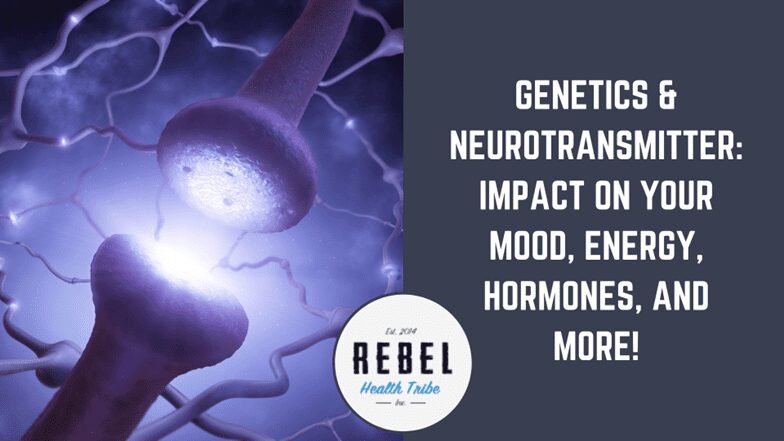
Genetics & Neurotransmitters: Impact on Your Mood, Energy, Hormones, and More!
Have you wondered why an antidepressant didn’t work for you?

Genetics and Detoxification: Your genes are key to knowing what detox protocol will best suit your body.
https://vimeo.com/821487331 If you’ve ever bought a detox kit off
There is so much happening right now in the field of the human microbiome.
From how it affects us to how we affect it, there is a connection that is tied at the very foundation of our being.
You may have heard about how our microbiome diversity is shaped by our environment and lifestyle as children and continually as adults and how we can select for beneficial and harmful species depending on the type of foods we eat.
And most certainly you have heard of the detrimental effects on our microbiome and health from living in an overly sanitized and antibiotic filled society.
But did you know that what you think and how you feel ALSO affects your microbiome, which affects your health – as well as how you think and feel, and so on as the loop continues?
Well, it does.
Thoughts are things and emotions have real biochemical ramifications, which set off all kinds of signals in the body, which creates a specific environment that is either selecting for beneficial microbes or harmful ones.
Evidence now established that altering the diversity of the microorganisms in our guts is affected by the environment in ways that are often within our control. Lifestyle choices that improve psychological states of mind appear to be part of a feedback loop that also improves the health of microbiome communities in our “gut-brain axis.”
So I want to talk about Mindfulness, Meditation, and the Microbiome.
Meditation can take many forms and often means different things to everyone who practices, but in general, meditation is defined as the practice of resting the mind with the goals of achieving deep mental rest and fully embodying the present moment.
These are tools, actually superpowers, that allow you to gain more balance and control of your thoughts, perceptions, and emotions.
There will always be some sort of stress in your life and the goal is not to get rid of it but to manage it because you can’t always change your situation, but you can change the way you perceive it. And this can have a dramatic effect on the health of your microbiome and ultimately your health.
Want to learn more about Mindfulness and Meditation? Get More Info Here
Meditation has been shown to exert a vast number of beneficial effects on the mind and body, including:
- Reduces Stress: Reduces cortisol, and stress-related symptoms such as IBS, PTSD, and others.
- Lowers Anxiety: Less stress = less anxiety and studies confirm that a regular practice lowers anxiety
- Enhances Self-Awareness: You gain a greater awareness of your thought habits and are more able to overcome negative thought patterns
- Reduces age-related memory loss: With greater mental clarity, and less stress, you are able to remember details and even reduce age-related memory loss
- Helps fight addictions: Increases willpower, reduces craving-related stress and gives more insight into unconscious actions it can help fight addiction
- Increases focus: You are able to stay on task for longer, remember details better and even improve your creativity
- Improves sleep: Fall asleep faster, stay asleep longer, help control thoughts preventing you from sleep.
- Decreases blood-pressure: Relaxing nerve signals and flight or fight response allows decreases your blood-pressure
By reducing stress and promoting feelings of peacefulness and relaxation, this stress reduction can, in turn, produce changes throughout your entire body—including your gut.
Early studies on humans have shown a correlation between psychological stress, stress hormones, and changes in microbial composition.
Mindfulness-based stress reduction could be a way to help prevent negative changes in the microbiota.
This has been tested in rodent studies designed to place mice in stressful situations. When stress was increased, it seems to dramatically alter the types of bacteria in a mouse’s gut, which has been observed numerous times.
Interestingly, this shift in bacterial species does indeed increase inflammatory marker levels in the blood, which has huge implications for many health conditions.
In one trial, 19 patients with digestive issues who participated in a meditation-based relaxation response course, like this one, showed significant decreases in symptoms, and they experienced genetic changes related to the stress response. This means that meditation can alter how our genes work.

Meditation can also help with common digestive complaints like gas, bloating, and cramps, by stopping the “fight or flight” survival response that can become habitual in times of stress. When you’re chronically stressed (we’ve been there), your body diverts energy and blood flow away from everyday functions – like digestion – to focus on preparing you for a true life or death situation. The results can include impaired digestion, abdominal discomfort, and temporary constipation.
The triggering of this fight-or-flight response by psychological stress prompts corticotropin-releasing hormone and catecholamine production in various parts of our bodies, which ultimately disturbs our microbiota. In the absence of stress, a healthy microbiota produces short-chain fatty acids that exert anti-inflammatory and antitumor effects. During stress, an altered gut microbial population affects the regulation of neurotransmitters mediated by the microbiome and gut barrier function. Meditation helps to regulate the stress response, thereby suppressing chronic inflammation states and maintaining a healthy gut-barrier function.
By relaxing your mind and your body, meditation can take you out of the “fight or flight” mode and move you into “rest and digest” mode, improving your entire digestive process and health.
The impact of stress on the gut is that it can deplete the beneficial bacteria that are so crucial to nearly every aspect of our health and vitality, from our digestion and nutrient absorption to our metabolism and immune function. If stress becomes chronic, which is not uncommon these days, your microbiome – the living ecosystem of microbes living in and on your body – can quickly become out of balance and inhospitable bacteria can take over, causing many of the health problems we see today.
By alleviating stress, meditation can support proper microbial balance for long-term health. These beneficial microbes help to produce and regulate important neurotransmitters that also keep your stress levels in check, like cortisol, serotonin, GABA, and oxytocin (the hug drug). It creates this positive feedback loop where meditation supports your microbes, which in turn support you, and the cycle continues.
So if you are suffering from stress or gut issues, you should also be practicing meditation and mindfulness. Our friends at Naked Moment have a free meditation and mindfulness bundle so you can get started reducing your stress right away!
Click HERE for more information and to get a free starter bundle that includes:
- 7 Powerful and EASY Guided Meditations for peace, tranquility, and happiness.
- 3 Day Mindfulness Course with powerful techniques to get back in control in stressful situations and come back to the present moment.
- 45 Minute Masterclass on the Yogi Code – the 10 essential principles for every Yogi.
RHT Gut Repair & Microbiome Optimization Guide
10 Steps to Repair Your Gut, Optimize Your Digestion, and Build a Healthy Microbiome!
- The top recommendations from 50+ hours of gut & microbiome webinars
- Easy-to-digest (get it?!), simple, and practical suggestions you can start right away
- What to eat for a happy, healthy, and diverse microbiome
- “Disease begins in the gut” - and so does health! Let’s turn it around!
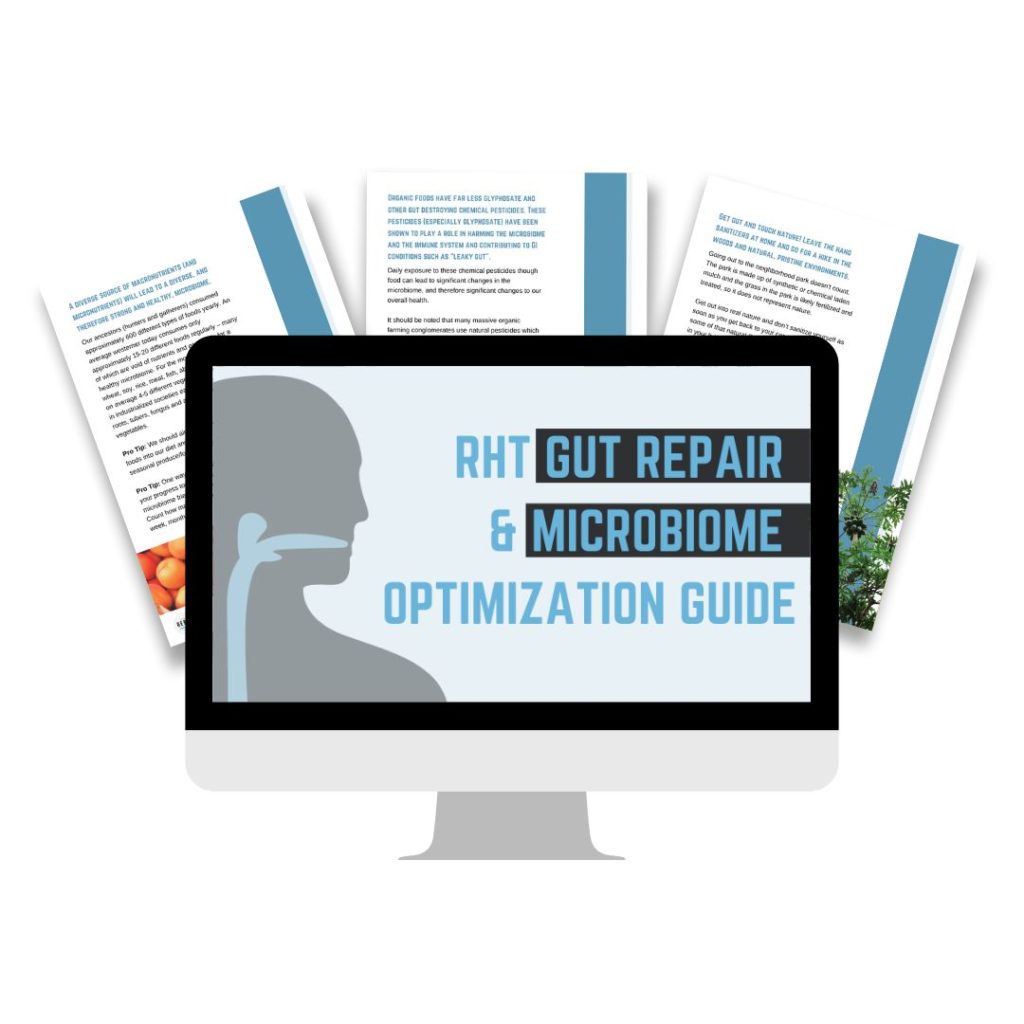
FEATURED PRODUCTS
-
HistaHarmony™
$46.99If you get fatigued, flushed, or foggy after eating, HistaHarmony,...
-
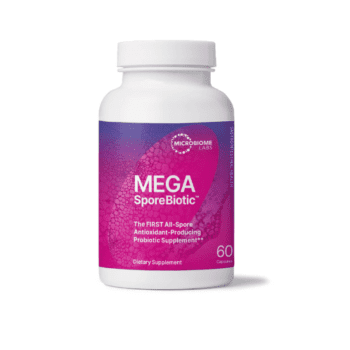
- Select options This product has multiple variants. The options may be chosen on the product page
MegaSporeBiotic
$59.99 – $176.95MegaSporeBiotic™ is a 100% spore-based, broad-spectrum probiotic shown to be...
-
MegaSporeBiotic For Kids Gummies
$39.00MegaSporeBiotic™ Gummies are a 100% spore-based proprietary probiotic blend that...
-
MegaMucosa
$59.99MegaMucosa is the first complete mucosal support supplement of its...
Get Social
Recent Podcasts
Recent Courses
Toxicity & Detoxification Masterclass 2024
The toxicity and Detoxification Masterclass covers a wide
Brain & Nervous System Masterclass 2024
19 Leading Experts Share Cutting-Edge Science, Effective Practices,
Autoimmune Masterclass 2024
Autoimmune Masterclass brings together 17 of the world’s
Toxicity & Detoxification Masterclass
The toxicity and Detoxification Masterclass covers a wide
Get the RHT Newsletter
Be the first to get access to special offers, new podcasts, courses, products and events from Rebel Health Tribe.
Facebook
Twitter
Pinterest
LinkedIn
Reddit
WhatsApp
Telegram
StumbleUpon
-
HistaHarmony™
$46.99If you get fatigued, flushed, or foggy after...
-

- Select options This product has multiple variants. The options may be chosen on the product page
MegaSporeBiotic
$59.99 – $176.95MegaSporeBiotic™ is a 100% spore-based, broad-spectrum probiotic shown...
-
MegaSporeBiotic For Kids Gummies
$39.00MegaSporeBiotic™ Gummies are a 100% spore-based proprietary probiotic...
-
MegaMucosa
$59.99MegaMucosa is the first complete mucosal support supplement...
Toxicity & Detoxification Masterclass 2024
The toxicity and Detoxification Masterclass covers a wide array of topics with the following guests: 1. Lara Adler, Environmental Toxins
Brain & Nervous System Masterclass 2024
19 Leading Experts Share Cutting-Edge Science, Effective Practices, and Clinical Strategies to Optimize Brain & Nervous System Health in Kids
Autoimmune Masterclass 2024
Autoimmune Masterclass brings together 17 of the world’s leading doctors, researchers, and experts on autoimmune diseases who each present their


